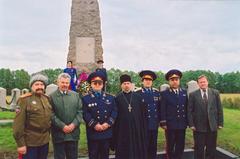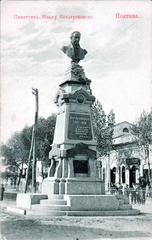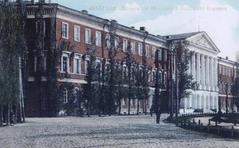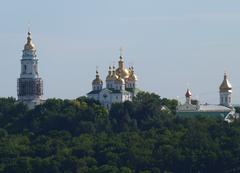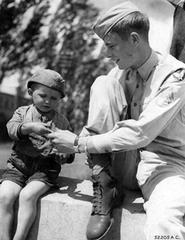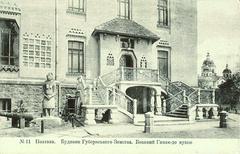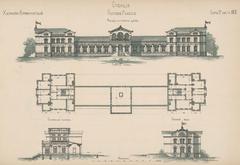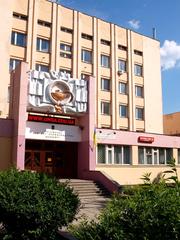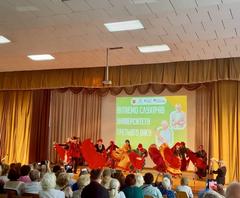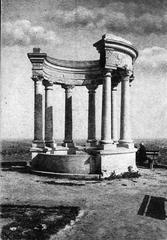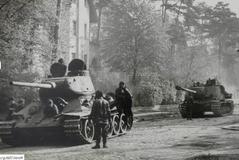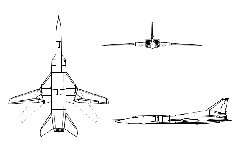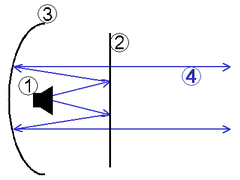Comprehensive Guide to Visiting Corpus Park, Poltava, Ukraine
Date: 17/07/2024
Introduction
Corpus Park, located in the historic city of Poltava, Ukraine, is an iconic landmark that beautifully merges history, culture, and nature. Established in the early 19th century to commemorate the 100th anniversary of the Battle of Poltava, this park has evolved significantly over the centuries, reflecting various historical epochs and cultural shifts. Corpus Park holds immense historical significance, initially designed as a classical English garden and later transformed to reflect Soviet ideals and, more recently, Ukrainian independence (Encyclopaedia Britannica). Today, it serves as a popular recreational space for both locals and tourists, offering a diverse array of attractions including historical monuments, botanical gardens, and cultural events. This guide provides a comprehensive overview of Corpus Park, covering its rich history, notable structures, visitor information, and travel tips to ensure a memorable visit.
Table of Contents
- Introduction
- Early Beginnings
- Development in the 19th Century
- Soviet Era Transformations
- World War II and Post-War Reconstruction
- Independence and Modern Era
- Recent Developments
- Notable Monuments and Structures
- Visitor Information
- Travel Tips
- Nearby Attractions
- Accessibility
- Special Events and Guided Tours
- Photographic Spots
- FAQ
- Conclusion
Discover Corpus Park - History, Visiting Hours, Tickets, and More in Poltava
Early Beginnings
Corpus Park, established in 1803 during the reign of Tsar Alexander I, was part of a broader initiative to beautify Poltava and provide a recreational space for its residents. Initially designed as a classical English garden, the park featured winding paths, lush greenery, and ornamental structures, influenced by the European trend of creating public parks that served both aesthetic and social functions.
Development in the 19th Century
Throughout the 19th century, Corpus Park underwent several phases of development and expansion. In 1841, the park was officially named “Corpus Park” in honor of the Poltava Cadet Corps, a prestigious military academy located nearby. The cadets often used the park for drills and leisure activities, further cementing its importance in the local community.
Soviet Era Transformations
The Soviet era brought significant changes to Corpus Park. In the 1920s and 1930s, the park was redesigned to reflect the socialist ideals of the time. Many of the original structures were replaced with new ones that emphasized Soviet achievements and ideology. For instance, a large statue of Vladimir Lenin was erected in the park’s central square, and several pavilions were built to host political rallies and cultural events.
World War II and Post-War Reconstruction
During World War II, Corpus Park suffered extensive damage as Poltava became a battleground between Nazi and Soviet forces. After the war, the park underwent a major reconstruction effort, adding new features such as a war memorial, a children’s playground, and a botanical garden.
Independence and Modern Era
With Ukraine’s independence in 1991, Corpus Park entered a new phase of its history. The park was gradually depoliticized, with many Soviet-era monuments and symbols being removed or replaced. New installations celebrating Ukrainian culture and history were introduced, and the park’s infrastructure was upgraded to meet modern standards.
Recent Developments
In recent years, Corpus Park has continued to evolve, hosting numerous festivals, concerts, and community events. Efforts have also been made to preserve and enhance the park’s natural beauty, with initiatives aimed at protecting its flora and fauna and promoting sustainable practices.
Notable Monuments and Structures
The Monument to the Poltava Cadet Corps
One significant landmark in Corpus Park is the Monument to the Poltava Cadet Corps. Erected in the mid-19th century, this monument commemorates the contributions of the cadets to the city’s history and development.
The War Memorial
The War Memorial, dedicated to the soldiers who fought and died in World War II, consists of a series of granite plaques inscribed with the names of fallen soldiers, as well as a central obelisk adorned with Soviet symbols.
The Botanical Garden
The Botanical Garden, established in the post-war period, is one of the park’s most cherished features. Covering several hectares, the garden boasts a diverse collection of plants and trees, including many rare and exotic species.
Visitor Information
Visiting Hours
Corpus Park is open daily from 6:00 AM to 10:00 PM, allowing visitors ample time to explore its many attractions.
Ticket Prices
Admission to Corpus Park is free, but certain attractions within the park, such as the Botanical Garden and guided tours, may have separate fees.
Travel Tips
- Best Time to Visit - Spring and summer are ideal for visiting Corpus Park when the park is in full bloom and the weather is pleasant.
- Guided Tours - Take advantage of the park’s guided tours for valuable insights into its history and significance.
- Leisurely Exploration - Explore the park’s various sections at a leisurely pace to fully appreciate its natural beauty and historical landmarks.
Nearby Attractions
While in Poltava, consider visiting other nearby historical sites such as the Poltava Battle Museum and the Holy Cross Monastery.
Accessibility
Corpus Park is accessible to visitors with disabilities, with paved pathways and ramps available throughout the park.
Special Events and Guided Tours
The park hosts numerous special events throughout the year, including cultural festivals, concerts, and community gatherings. Guided tours are available and provide an in-depth look at the park’s history and notable features.
Photographic Spots
Corpus Park offers many picturesque spots perfect for photography, including the Botanical Garden, the Monument to the Poltava Cadet Corps, and the War Memorial.
FAQ
- What are the visiting hours for Corpus Park?
Corpus Park is open daily from 6:00 AM to 10:00 PM. - Is there an admission fee?
Admission to the park is free, but some attractions may have separate fees. - Are guided tours available?
Yes, guided tours are available and provide valuable insights into the park’s history and significance. - Is Corpus Park accessible for visitors with disabilities?
Yes, the park has paved pathways and ramps for accessibility.
Conclusion
Corpus Park is not just a recreational space but a living testament to Poltava’s rich history and cultural heritage. Its evolution over the centuries reflects the broader social and political changes that have shaped the city and the country. Today, the park continues to be a beloved destination for both locals and tourists, offering a unique blend of natural beauty, historical significance, and cultural vibrancy. Plan your visit today and immerse yourself in the history and beauty of Corpus Park.
For more updates and information, download the Audiala mobile app, check out our related posts, or follow us on social media.
